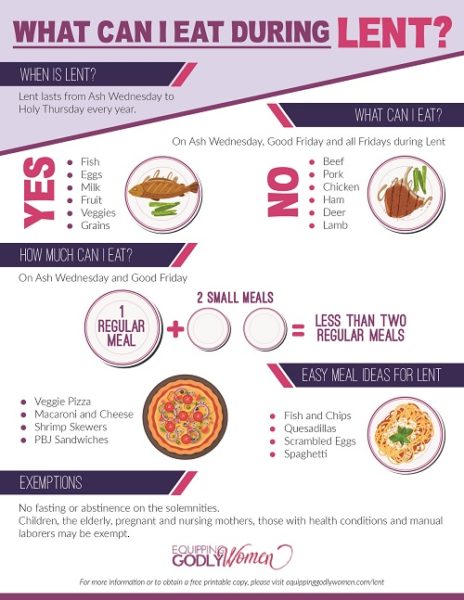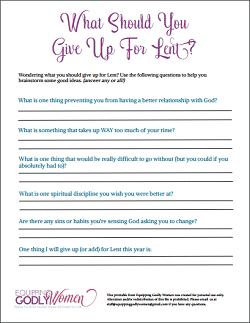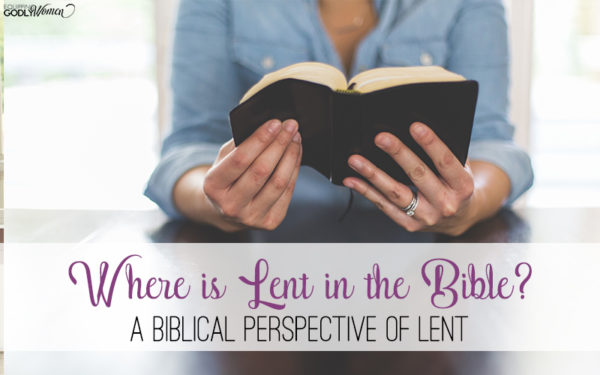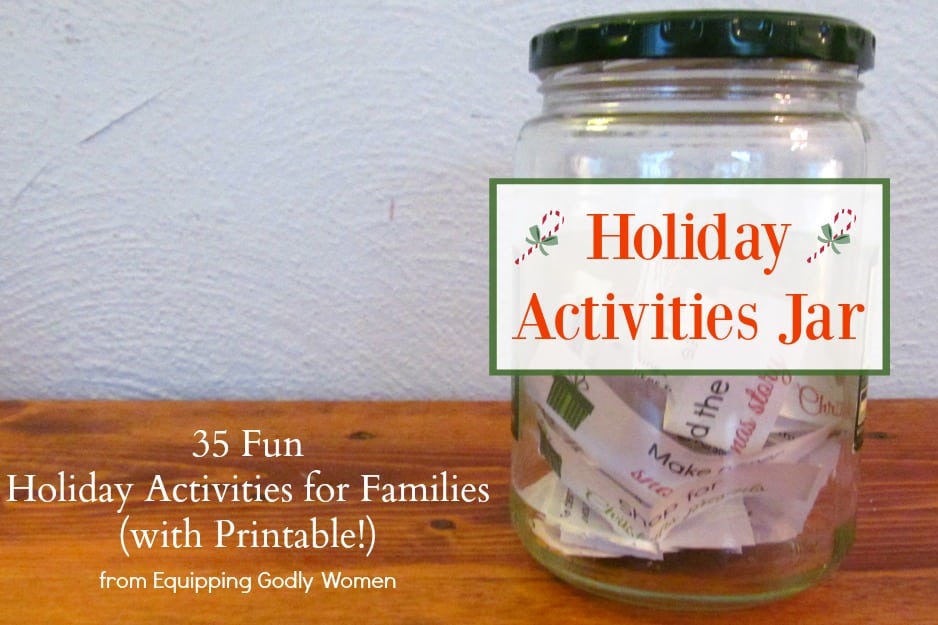Catholic Lent Fasting Rules Made Easy (Complete Guide!)
Wondering what you can eat during Lent? Confused by the Roman Catholic Lent fasting rules? If so, you’re in the right place!
Personally, I grew up in a Protestant family that didn’t celebrate Lent (and still doesn’t). So when I married into a Catholic family, I suddenly had a lot of learning to do–and quick!
Unfortunately, as a beginner, I found the process of trying to figure out all the Catholic Lent fasting rules really confusing and frustrating.
I couldn’t find one single comprehensive guide that explained all of the Roman Catholic Lent rules in a straightforward, easy-to-understand way. Instead, all the articles I found were full of Catholic jargon I didn’t understand or they only answered one very specific question regarding the Catholic Lent fasting rules.
Thankfully, after lots of research, I did eventually figure out what you can eat during Lent. And now I’m excited to share this comprehensive, easy-to-understand Roman Catholic Fasting Rules Guide with you!
![What to Give Up for Lent 2021: Get the 50 [Best] Lent Ideas!](https://equippinggodlywomen.com/wp-content/uploads/2016/02/What-Can-You-Eat-During-Lent-400x600.jpg)
In this article, I’m answering questions including:
When is Lent?
Lent begins on Wednesday, March 5, 2025 and ends on Thursday, April 17, 2025. The first day of Lent is known as Ash Wednesday. The last day of Lent is known as Holy Thursday. Lent always begins six and a half weeks (46 days) before Easter Sunday.
What Are the Roman Catholic Lent Fasting Rules?
For those in the Roman Catholic Church, the Lent Fasting Rules are:
- Fast on Ash Wednesday and Good Friday.
- Abstain from meat on Ash Wednesday, Good Friday, and all Fridays during Lent.
That’s it! Lent is 40 days long (46 days if you count Sundays), but you only have to follow the Catholic Lent fasting rules on 8 days total. And only two of those days are fasting days.
Every other day during Lent, you can eat like normal. No changes needed.
Want an Easy Way to Remember How to Fast in Lent?

Grab this “What Can I Eat During Lent?” PDF for your fridge!
This simple cheat sheet has the Lent fasting rules in simple language, it includes 8 meal ideas for busy nights, AND it serves as a great visual reminder so you don’t forget when to fast!
It’s yours 100% free. Just tell me where to send it…
Official Guidelines for Fasting During Lent
During Lent, “fasting” means eating less than usual so you can devote more time to prayer, reflection, penance, charity (almsgiving), and spiritual growth. It doesn’t mean you can’t eat anything, however.
According to the Roman Catholic Lent Fasting Guidelines, you can eat one full meal and two smaller meals throughout the day as long as your total intake is less than two regular meals. Snacking is not allowed.
Unlike with the Christian spiritual discipline of fasting, when you voluntarily chose to give up all food (or something else) for a period of time, you can still eat during a Lenten fast. Additionally, not everyone has to fast.
According to the Code of Canon Law, provided by the Vatican, only Catholics between the ages of 18 through 59 are required to fast, and fasting is only required on Ash Wednesday and Good Friday (unless a solemnity falls on one of those days).
(The United States Conference of Catholic Bishops does recommend continuing the Good Friday fast through the next day (Saturday), if possible, but this practice is not followed widely.)
According to the Pastoral Statement on Penance and Abstinence provided by the United States Conference of Catholic Bishops:
“Wherefore, we ask, urgently and prayerfully, that we, as people of God, make of the entire Lenten Season a period of special penitential observance. Following the instructions of the Holy See, we declare that the obligation both to fast and to abstain from meat, an obligation observed under a more strict formality by our fathers in the faith, still binds on Ash Wednesday and Good Friday. No Catholic Christian will lightly excuse himself from so hallowed an obligation on the Wednesday which solemnly opens the Lenten season and on that Friday called “Good” because on that day Christ suffered in the flesh and died for our sins.”
Note: The Catholic Church does make several exceptions to this requirement, particularly in instances where fasting in accordance with the Catholic Lent Rules would cause or contribute to health concerns. See below for details.
Official Guidelines for Abstinence During Lent
During Lent, “abstinence” means abstaining from eating meat and products that contain meat.
Catholics 14 years of age and older are required to practice abstinence (give up meat) on Ash Wednesday, Fridays during Lent, and Good Friday–unless a solemnity falls on one of those days.
What Can You Eat During Lent?
Catholic can eat all of these foods on any and all days during Lent:
- Fish
- Eggs
- Any Fruits
- Any Vegetables
- Any Dairy Products (milk, butter, and yogurt)
- Any Grains (noodles, breads, and donuts)
What Can’t You Eat During Lent?
Catholics 14 years of age and older are not allowed to eat the following foods on Ash Wednesday, Fridays during Lent, or Good Friday:
- Chicken
- Beef
- Pork
- Ham
- Deer
- Lamb
- Buffalo
Furthermore, while the official Catholic Lent Fasting Rules don’t mention this explicitly, most Catholic Christians believe these meals should be simple (a sacrifice, even if small) rather than an excuse to gorge yourself on delicious lobster or crab. This is mostly left up to personal discretion, however.
Lent Fasting and Abstinence Exemptions
The Catholic Church offers plenty of exemptions to those who are unable to follow the Catholic Lent rules. For example, the following people are all exempt from fasting and abstaining during Lent:
- Children
- Anyone age 60 years of age or older
- Pregnant and nursing mothers
- Those who are frail
- Individuals of “unsound mind”
- Manual laborers who need to eat to have the strength to work
- People who cannot fast or abstain for health reasons (diabetes, eating disorders, etc.)
- And even guests whose refusal to eat would greatly offend their dinner host!
While it’s relatively easy to get out of following the Lent restrictions, you and God know if you should truly be exempt or if you’re just looking for ways to get out of doing something hard.
And don’t forget: Even if you can’t fast, there are plenty of other things you could give up for Lent instead.
What Should You Give Up for Lent? (Let’s Find Out!)

Instead of picking something random from a list, why not choose the option that will give you the biggest impact?
Take the “What Should You Give Up for Lent?” self-assessment and discover your biggest opportunities for growth this year.
It’s 100% free. Just let me know where to send it!
Catholic Lent Fasting Rules Frequently Asked Questions
Have a specific question about the Catholic Fasting Rules? Here are answers to some of the most common questions.
Do You Fast Everyday During Lent?
Catholics only fast on Ash Wednesday and Good Friday during Lent, not every day. Catholics fast by eating one regular meal and two small meals (that equal less than one regular meal) with no snacks in between. Fasting does not mean no food all day, and fasting is not a requirement if the Friday falls on a Solemnity.
Can Catholics Eat Meat on Ash Wednesday?
Catholics do not eat meat on Ash Wednesday, Good Friday, or Fridays during Lent. Instead, they fast and abstain from meat on Ash Wednesday in order to spend more time in prayer or to give more generously to the poor.
When Can You Eat Meat During Lent?
Catholics can eat meat on all days during Lent except Ash Wednesday, Good Friday, and Fridays during Lent. Catholics are only required to abstain from meat on these eight days. All the other days (and on all Solemnities), they may eat like normal.
Can you Eat Chicken on Fridays During Lent?
Catholics do not eat chicken on Fridays during Lent, Good Friday, or Ash Wednesday. This includes large pieces of chicken, such as chicken wings, chicken casseroles, or chicken legs. However, Catholics can have eggs and liquid chicken broth (without pieces of meat) during Lent (and on all Solemnities).
Can You Eat Eggs During Lent?
Catholics can eat eggs during Lent. Because eggs are not the “fleshy” part of the animal, eggs do not count as meat for Lent.
Can You Have Dairy Products During Lent?
Catholics can have dairy products during Lent, including milk, yogurt, cheese, and cottage cheese. Animal products are fine. The Roman Catholic fasting rules only require Catholics to avoid the fleshy meat of animals, not all animal products or their derivatives.
Can You Eat Chicken Stock / Beef Broth / Turkey Gravy During Lent?
Most Catholics believe you can eat chicken stock, beef broth, turkey gravy, and other similar condiments during Lent, as long as you are only eating the juices from the animals, not the meat (flesh) itself. However, not everyone agrees. You will want to ask your local priest for a definitive answer on this one.
Can You Eat Fish During Lent?
Catholics can eat fish during Lent. While the reasons are unclear, Catholics do not consider seafood (fish, shrimp, crab, lobster) as meat during Lent. This is why Friday fish fries and clam chowder are so popular on Fridays during Lent!
Is Fish Meat? Why Isn’t Fish Considered Meat During Lent?
Fish is not considered meat under the Catholic Lent Fasting Rules. There are several theories as to why this is…
For example, some have suggested that it’s because fish are cold-blooded (while cows and chickens are warm-blooded). Others have suggested that it’s due to the fact that fish used to be common, while steaks were rare. Others believe the rule was invented–at least in part–to help the fish economy in the 16th century.
We know the Bible tells us in 1 Corinthians 15:39, “Not all flesh is the same: People have one kind of flesh, animals have another, birds another and fish another.” But this Scripture verse doesn’t tell us why, and common sense doesn’t make it clear either.
According to this article on MentalFloss, “That distinction was possibly taken from Judaism’s own dietary restrictions, which separates fleishig (which includes land-locked mammals and fowl) from pareve (which includes fish). Neither the Torah, Talmud, or New Testament clearly explains the rationale behind the divide.”
Most likely, the weird rule happened as a result of a combination of factors.
As I shared in my other post, “Where is Lent in the Bible?” the Catholic Lent rules and traditions were not handed down to us in final written form. Instead, they’ve gradually evolved over time to meet the needs and preferences of the people at the time. Sometimes, this results in strange rules that don’t make a lot of sense to us today.
What CAN You Eat on Fridays During Lent?
You can eat a wide variety of simple, meatless meals, such as pancakes, eggs, spaghetti, cheese pizza, peanut butter and jelly sandwiches, salad, vegetable soup, fish, shrimp and more.
Here’s a list of 50 Easy Lent Recipes You’ll Love to Make if you need ideas
What Happens if I Forget and Eat Meat on a Friday During Lent?
If you forget and eat meat on a Friday during Lent, simply stop eating your meat (immediately or as soon as you remember) and follow the rules for the rest of the day. You should probably mention it the next time you’re at confession as well.
Otherwise, I wouldn’t worry too much. As long as it was truly accidental, it’s not a sin to forget. It happens to all of us!
What are the Lent Fasting Rules for Protestant Christians?
Protestant Christians are not required to follow any Lent fasting rules. Because the Catholic Lent Fasting Rules are handed down from the Vatican, they are binding to Roman Catholic Christians only.
However, some non-Catholic Christians (myself included!) do choose to follow the Catholic Lent fasting rules, even though we don’t have to.
According to a 2014 study conducted by the Barna Group:
“Not surprisingly, practicing Catholics are among the most likely to have participated in Lent, with just over two-thirds (65%) saying they have celebrated the fast in the past three years.
But many Protestants have also adopted the habit: one in six practicing Protestants (15%) say they have fasted for Lent in the past three years, and about the same number (16%) say they plan to fast this year.“
Why Can’t You Eat Meat on Fridays During Lent?
Catholics abstain from eating meat during Lent because Lent is meant to be a forty-day period of sacrifice, repentance, and spiritual preparation leading up to Easter. By giving up meat (along with prayer and fasting as well as any other voluntary sacrifices), Christians can better prepare their hearts to observe the Holy season.
But why meat? To best explain why Roman Catholics don’t eat meat on Fridays, allow me to use an analogy:
In our house, our boys are not allowed to jump on the furniture. As their parent, I have the authority to make that rule, and I have for the good of our family. I have good reasons for having this rule, but that doesn’t really matter. As my children, my boys are expected to listen and obey because I am their mother.
Is jumping on the couch inherently wrong? No. If my neighbor’s kids jump on their couch, is that wrong? No, not unless their mother has made the same rule at their house. Is jumping on the couch really that big of a deal? No, not really.
But, as my children’s mother who is responsible for their well-being, I have the authority to make the rules for the good of my children as I see fit.
It’s the same thing with the Catholic church and their Catholic Fasting Rules.
Is eating meat inherently wrong? No. If non-Catholics don’t fast during Lent, is that wrong? No. Is eating meat really a big deal? No, not really.
Eating meat isn’t the issue. Since Lent isn’t commanded in Scripture, following the Catholic fasting rules is more an issue of obedience to the authority figures that God has placed over us.
**And honestly, this is the big sticking point–who has the authority? For more on this issue, please see my post: Who has the Ultimate Authority? A Biblical Look at Sola Scriptura. No matter which way you believe, it’s a great read!
Sure, the church could have said, “Just do whatever you want,” but that leaves a lot open to interpretation. (And makes it reallllly easy to be lazy and do nothing at all.)
By setting actual guidelines for what you can eat during Lent (that really aren’t that bad), the church makes it that much more likely that people will actually follow through.
According to the canon 1249 of the Code of Canon Law:
“In order for all to be united among themselves by some common observance of penance, however, penitential days are prescribed on which the Christian faithful devote themselves in a special way to prayer, perform works of piety and charity, and deny themselves by fulfilling their own obligations more faithfully and especially by observing fast and abstinence, according to the norm of the following canons.”
Following the Catholic fasting rules isn’t really about answering the question, “What can you eat on Lent?”
For many Christians, Lent is a period of penance leading up to Easter in which they remember and model the example of Jesus and the sacrifice he made for us on the cross. It just happens that our suffering (or penance) is far easier than his!
Need Help Remembering What to Eat During Lent?

Grab this “What Can I Eat During Lent?” PDF for your fridge!
This simple cheat sheet has the Lent fasting rules in simple language, it includes 8 meal ideas for busy nights, AND it serves as a great visual reminder so you don’t forget when to fast!
It’s yours 100% free. Just tell me where to send it…
Special Note: Roman Catholic Fasting Rules Throughout the Year
Many people don’t know this, but technically, Catholics are supposed to abstain from meat on ALL Fridays (except solemnities) throughout the entire year–not only during Lent.
Catholic Christians living in America are allowed to substitute a different form of penance throughout the rest of the year (most don’t do either), but fasting and abstinence during Lent are required.
Will you follow the Catholic Lent Fasting Rules this year? What questions do you still have about what you can eat during Lent?
Additional Resources You May Also Like:
![What to Give Up for Lent 2021: Get the 50 [Best] Lent Ideas!](https://equippinggodlywomen.com/wp-content/uploads/2019/01/What-Should-I-Give-Up-for-Lent-blog-600x375.jpg)










Hi, I am a person who converted to be catholic and I follow the previous non modern world fasting of lent ,even in the new version of lent there are no donuts sweets ,that is not fasting. thought people might want to know .That is why there is fat Tuesday, to eat the fat, donuts.
Sb
May God Bless You!
Thank you for sharing!
It's a comprehensive and informative resource that provides readers with a clear and concise explanation of the fasting rules and traditions associated with the Lenten season in the Catholic faith. The article offers a detailed overview of the history and significance of Lent, as well as practical guidance for observing the traditional fasting practices, such as abstaining from meat and limiting food intake on Ash Wednesday and Good Friday. It also provides guidance on the importance of prayer, charity, and repentance during the Lenten season, and offers tips and advice for making the most of this sacred time of year. This article is a valuable resource for Catholics who are seeking to deepen their spiritual practice and connect with the traditions and teachings of their faith. It provides clear and practical guidance for observing the traditional fasting practices of Lent, while also emphasizing the importance of prayer, reflection, and acts of kindness and charity. Overall, this article is an inspiring and insightful resource for anyone who is seeking to deepen their faith and live a more meaningful and purposeful life.
Finally! A comprehensive, easy to read "do's and don'ts guide for Lent. Like you I was confused as
heck. Thanks for sharing.
LOL…one year later here I am again! Ugh! Keep forgetting. Thanks Brittany.
lol! Same, and I wrote the article. I still print out the printable EVERY year. 🙂
Can I please have the PDFS? Thank you!
Just emailed you the guide! Enjoy!
If these Lenten Rules are not in the 10 Commandments and were written by men, why would someone confess they accidentally ate meat. That is not a sin.
That’s a great question! To clarify: No one I know of goes to confession for “accidentally” eating meat. Forgetting or accidentally eating meat is never a sin for anyone. Most people just say “oops!” and move on with their lives. If someone feels really badly, they *could* confess if it makes them feel better, but they don’t have to.
What *would* be a sin would be if you believe the Church has the authority to set rules for you to follow, you know about the rule, and you choose not to follow it, knowing it would be wrong.
(To give a different example: If I told my children not to jump on the couch, they knew the rule, but they did it anyway when I wasn’t looking. Jumping on the couch isn’t wrong in and of itself. It’s the disobedience that’s the problem.)
Catholics believe the Church does have the authority to create rules in their best interest. These rules can never go against Scripture or the past teachings already established, however. This post explains more! https://equippinggodlywomen.com/faith/who-has-the-ultimate-authority-a-biblical-look-at-sola-scriptura/ 🙂
Good morning. Wonderful post. I need clarification on the section, “Lent is 40 days long (46 days if you count Sundays), but you only have to follow the Catholic Lent fasting rules on 8 days total.” Even though the Lenten season is 40 days, not including Sundays, but you are allowed to “indulge” on Sunday. Is this not correct? What does it mean “8 days total?” Any information is appreciated. Thank you.
Great question! Eight days total is referring to Ash Wednesday, Good Friday, and all the Fridays during Lent. So that total comes to 8 days where fasting rules apply.